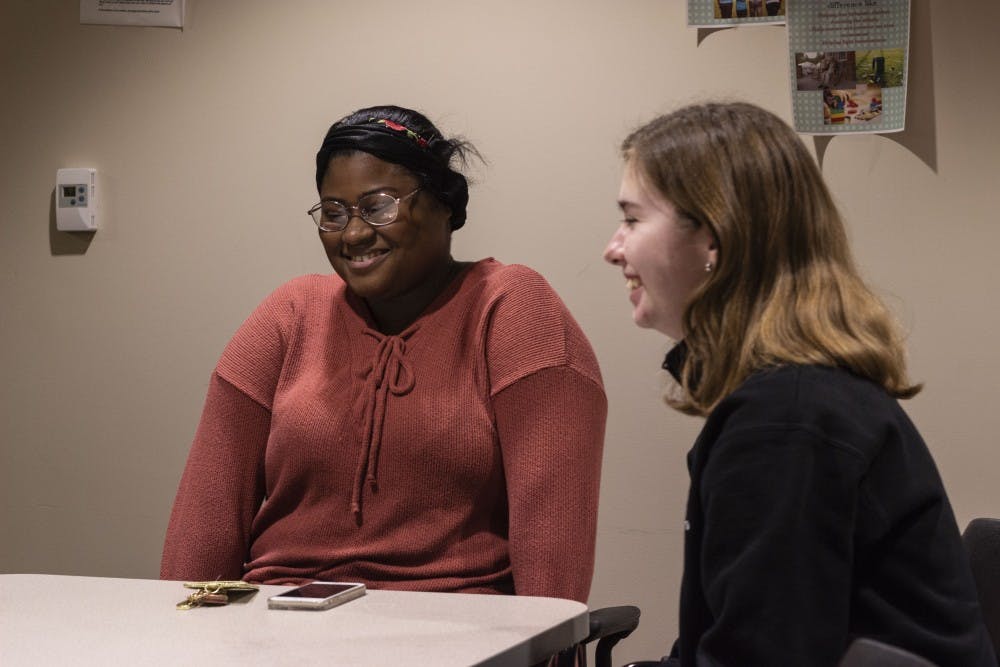Last year, teachers from West Virginia, Oklahoma and Kentucky decided enough was enough. Last month, tens of thousands of teachers in Los Angeles did the same. Now, teachers in Denver are planning to take similar action, and Indiana teachers are facing similar conditions.
Teachers across the nation have been striking and protesting, shutting down schools and pressuring state legislators to raise their salaries and fix other problems like class size and resource funding.
Indiana lawmakers are debating over how best to raise teacher pay. In Gov. Eric Holcomb’s State of the State address last month, he proposed the state use its surplus fund to pay off the teacher pension fund, so schools can use the surplus money to raise teacher salaries.
That might not happen. And although rallies and walkouts are fair game, striking is illegal for public employees in Indiana, including teachers.
Students at IU studying education have differing views on striking, but they know something needs to change.
***
Sophomore Yin Kwok is a secondary English education major at IU, which means she will teach to middle or high school students. She’s wanted to be a teacher since she was in elementary school, she said. When she would play “school” with her siblings, she always chose to be the teacher.
When she tutored in high school, she said she enjoyed helping other students feel confident in their writing skills.
Kwok said she is not sure how effective striking would be.
“There’s always strikes going on, but nothing is going change until our government is different,” she said. “It’s important to have someone in charge who can prioritize these issues.”
Teachers often strike for reasons beyond better pay. One of Kwok’s main concerns is the achievement gap between white and minority students.
Kwok is from the Chicago area, where she said schools tend to be more segregated in terms of race and income. This creates a divide for teachers, too.
“In my mind, it’s a constant battle between wanting to help the struggling schools and wanting to go to a better paying school and get paid enough,” she said.
***
Freshman Shauntell Harris chose to pursue elementary education after being inspired by her kindergarten teacher.
The two still keep in touch today, and her former teacher also makes sure to check in on her five younger siblings, Harris said.
“A lot of students say their teachers genuinely care, but she goes above and beyond,” Harris said.
Harris said striking can be necessary, but it has downsides. Teachers should be allowed to stand up for what they believe in, she said, but teacher shortages are already hurting students.
In the school district where she grew up, Harris said, schools are planning on combining for funding purposes. This could lead to larger class sizes and not enough teachers to go around, she said.
In addition, Harris said she grew up around poor neighborhoods, and sometimes schools did not have enough resources like technology. This can hurt students’ abilities to learn, she said, and teachers are punished for it.
***
Sophomore Brigid Rakow thought she wanted to be a teacher while she was in high school.
Her parents were supportive of the idea, she said. But when she worked part-time as a golf caddy and would tell customers she wanted to be a teacher, they told her she would never make enough money.
Eventually, she folded.
She started out studying in the School of Public and Environmental Affairs but quickly realized she needed to pursue her passion. Before her sophomore year, she switched her major to secondary English education.
“I was like, ‘I have to go with what I want to do,’” she said. “I’m not trying to live the lavish lifestyle.”
Rakow said she thinks striking is the biggest statement teachers can make, especially when they are not paid enough to survive. But she worries for students who may suffer as a result, she said.
She said some of her friends in the Chicago public school system have been out of school for weeks at a time because of striking.
“It’s a hard line to balance because you have to teach but also fight for change,” she said. “Someone has to do it.”




